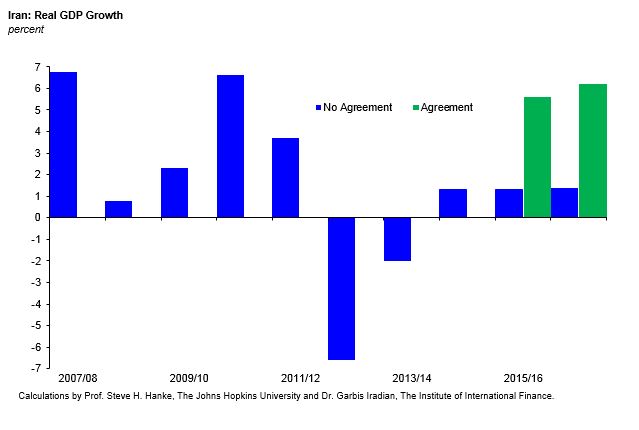The newly inked deal with Iran is already raining down fire and brimstone from its opponents, though most of them admit they haven't read it. Here are ten things important to understanding the deal.
1. US Sanctions have been in place since the US Embassy was taken in 1979, imposed by the Carter Administration. They were increased substantially in 1995 by the Clinton Administration.
2. US sanctions were violated in 1985 by the Reagan Administration who sold weapons to Iran. Israel was the intermediary that passed the weapons on to the Iranians.
3. European and United Nations sanctions were imposed in 2006, specifically to force Iran to allow international inspectors and to stop its development of nuclear weapon capability.
4. Negotiators of the Iran Deal -- US, Iran, Britain, China, France and Russia -- represent a diverse group of interests and attitudes toward Iran. All five permanent members of the UN Security Council had to agree.
5. Iran must eliminate 98% of its enriched uranium and destroy 2/3 of its centrifuges.
6. International inspections are required but not as immediate as hoped. Any violations would mean restored sanctions and threatened military action.
7. Once Iran does as promised (and not before), the UN and EU will eliminate their sanctions.
8. US sanctions remain in place, with the modest exceptions of food, commercial aircraft (a concession to Boeing?) and carpets. One of the major objections to this deal from business is that they miss out on the new markets.
9. Israel's Netanyahu objects to any deal, regardless of the terms. Israel is not offering however to open its own nuclear program to inspectors, nor is it a partner in any of the United Nations' international nuclear weapons agreements.
10. Those objecting to the deal offer no alternatives. Sanctions forever, regardless of Iran's actions? War against Iran?
1. US Sanctions have been in place since the US Embassy was taken in 1979, imposed by the Carter Administration. They were increased substantially in 1995 by the Clinton Administration.
2. US sanctions were violated in 1985 by the Reagan Administration who sold weapons to Iran. Israel was the intermediary that passed the weapons on to the Iranians.
3. European and United Nations sanctions were imposed in 2006, specifically to force Iran to allow international inspectors and to stop its development of nuclear weapon capability.
4. Negotiators of the Iran Deal -- US, Iran, Britain, China, France and Russia -- represent a diverse group of interests and attitudes toward Iran. All five permanent members of the UN Security Council had to agree.
5. Iran must eliminate 98% of its enriched uranium and destroy 2/3 of its centrifuges.
6. International inspections are required but not as immediate as hoped. Any violations would mean restored sanctions and threatened military action.
7. Once Iran does as promised (and not before), the UN and EU will eliminate their sanctions.
8. US sanctions remain in place, with the modest exceptions of food, commercial aircraft (a concession to Boeing?) and carpets. One of the major objections to this deal from business is that they miss out on the new markets.
9. Israel's Netanyahu objects to any deal, regardless of the terms. Israel is not offering however to open its own nuclear program to inspectors, nor is it a partner in any of the United Nations' international nuclear weapons agreements.
10. Those objecting to the deal offer no alternatives. Sanctions forever, regardless of Iran's actions? War against Iran?






Comments
Post a Comment
I'm interested in your comments.